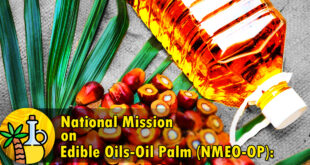TOPICS COVERED:
Government policies and interventions for development in various sectors and issues arising out of their design and implementation.
Context:
These are some of the guidelines for the professional conduct of registered doctors of modern medicine recently notified by the ethics and medical registration board under the country’s apex regulator National Medical Commission (NMC).
About the guidelines:
On commissions:
The guidelines warn against receiving commissions from pharmacies or diagnostic laboratories or attending conferences sponsored by the pharmaceutical industry.
On birth control and abortions:
The comprehensive guidelines specifically mention that no doctor can deny birth control measures or abortions based on religious beliefs.
On social media:
- The document for the first time provides an 11-point guideline on doctors using social media.
- It says that doctors may provide information or make announcements online, but the information should be verifiable and not mislead people.
- The doctors have been asked not to discuss the specifics of the treatment of their patients or post their scans online.
- The guideline also forbids doctors from purchasing likes, followers, or any fees to boost their profile on search algorithms.
- Doctors should not participate in telemedicine platforms that provide ratings, reviews, and promotions of certain doctors by any means.
- It adds that the educative material that doctors put out on social media must relate to their own field of expertise.
- Doctors have also been asked to follow decorum when interacting online or speaking about their colleagues.
On prescriptions and treatments
- Doctors have been asked to write prescriptions in legible, capital letters.
- They have been asked to prescribe only generic medicines, except for cases where medicines have a narrow therapeutic index and other exceptional cases.
- Therapeutic index means drugs where a small difference in dosage may lead to adverse outcomes.
- The guidelines also urge judicious use of fixed-dose combinations, with doctors being asked to prescribe only the approved, rational combinations.
- They further ask doctors to educate people on generics being equivalent to branded medicines, urge pharmacies to stock them, and encourage people to purchase drugs from Jan Aushadhi Kendras and other generic drug outlets.
- The telemedicine guidelines also list the type of drugs by the type of consultation provided.
Doctor’s right to refuse treatment:
- The guidelines give doctors the right to refuse treatment when patients or their family members are abusive, unruly, or violent.
- The doctors have also been given the right to refuse treatment if the patient cannot pay them.
- The guidelines forbid doctors from refusing treatment, however, in cases of medical emergencies.
- They have been asked not to discriminate based on gender, race, religion, caste, social, economic or cultural grounds.
Continuous Professional Development (CPD)
- For the first time, the regulator has made it mandatory for doctors to continue to learn throughout their active years.
- The guidelines say that doctors should have studied 30 credit points in their relevant fields at the time of renewal of their license every five years.
- Even professors at medical college hospitals have to undergo such training despite staying in touch with academics.
- There are guidelines for institutes that can provide these continuous training courses, which again have to be registered with NMC.
Doctors participating in conferences
- While the guidelines make it mandatory for doctors to undergo CPD, they say that none of these educational sessions or conferences can be sponsored by the pharmaceutical industry.
- So if a doctor speaks at a symposium sponsored by the pharma companies, the doctor becomes liable.
- Doctors should not be involved in any third-party educational activity like CPD, seminar, workshop, symposia, conference, etc which involves direct or indirect sponsorships from pharmaceutical companies
- The guidelines say doctors or their families should not receive any gifts, travel facilities, hospitality, cash or monetary grants, consultancy fee or honorariums, or access to entertainment or recreation from pharmaceutical companies under any pretext.
- This restriction does not apply to the salaries of doctors working for such companies.
SOURCE: THE HINDU, THE ECONOMIC TIMES, PIB
 Chinmaya IAS Academy – Current Affairs Chinmaya IAS Academy – Current Affairs
Chinmaya IAS Academy – Current Affairs Chinmaya IAS Academy – Current Affairs



